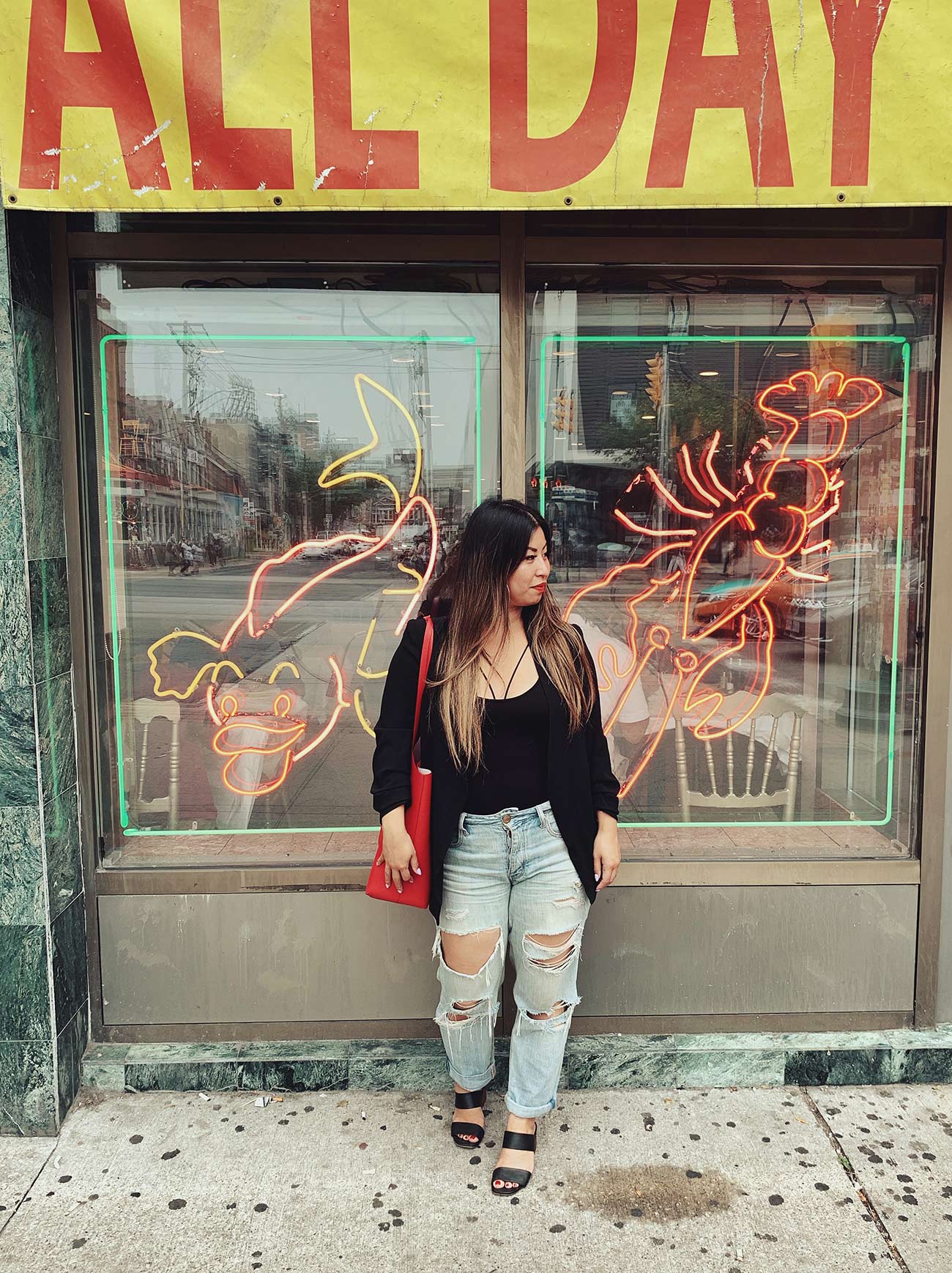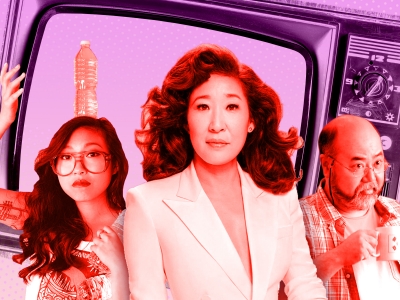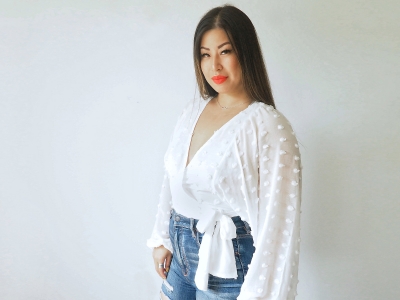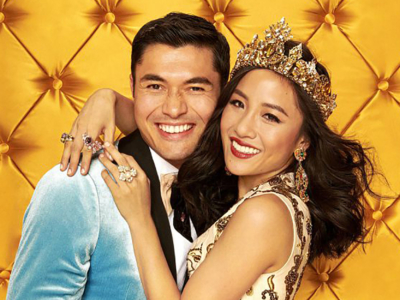
Being asked “Where are you from?” and the more offensive”What are you?” is almost a daily occurrence for me as an Asian-Canadian. After being posed a variation of the same question my entire life, I realized that I wasn’t being asked where I was born, grew up or my nationality. No, they were asking what my ethnicity was, albeit unsuccessfully.
Growing up, I relished the opportunity to enlighten people about my ambiguous features. But as I became more aware of the implications of such a query, my response ranged depending on my mood…or how hungry I was.
“What are you?”
“Hungry.” (sassy)
“Human.” (rebellious)
“Canadian.” (contrary)
“Asian.” (vague)
“Chinese.” (go away now)
If I had known that questions like “What are you?” and “Where are you from?” were actually microaggressions that were harmful to my sense of worth and belonging, I wouldn’t have been as indulgent.
For most of my life I attributed my persistent sense of otherness to growing pains. But upon reflection, triggered by the rise of anti-Asian hate crimes, I’ve realized that it’s much more than that.
RELATED READING:
➳ What ‘Crazy Rich Asians’ Means To Me, A Canadian-Born Chinese
➳ What It’s Like To Date From The Perspective of An Asian Woman
➳ Celebrate Asian Heritage Month By Watching These Shows
Why Do People Ask “What Are You?”
The first, and sometimes only, questions that people ask me are “What are you?” or “Where are you from?”
They don’t ask what I do for a living (graphic designer and art director), what I do for fun (salsa dancing), my favourite food (anything noodle-y), or if I could choose any superpower, what would it be (instant transportation or telekinesis).
Nope. They want to know something that wasn’t a choice; something I was born.
According to social psychologists, the reason why we feel so compelled to identify a person’s ethnicity is because categorization based on demographic characteristics (like age, race and gender) is “a ubiquitous part of social perception.”
Subconscious or not, our brains develop mental shortcuts (known as cognitive bias) based on past experiences to compensate for a lack of knowledge. They help us process and interpret information, form judgements and guide our emotions and behaviour.
While this approach may provide a calming response that engenders positive social interactions, it comes with some major caveats.
Firstly, once you start developing cognitive biases, it’s hard to shake. We unintentionally begin to look for proof that affirms our beliefs and ignores evidence to the contrary.
Secondly (and more importantly), you can’t accurately assess any individual or group based on broad generalizations.
The origins of our genetic material does not define who we are.
To regard a race as monolithic is reductive to the individual. Not all Asians are good at math. Not all Italians love pasta. Not all Brits drink tea.
The Harmful Effects of Asking “Where Are You From?”
Listen, I get it. You’re curious; making conversation, and there was no ill-intent behind asking “What are you?” and “Where are you from?” But while your intentions may not be malicious in nature, in the end what matters is the impact.
People on the receiving end of negative stereotypes and microaggressions can experience a number of long-lasting negative effects, both emotionally and behaviourally.
Studies have shown that it can affect decision-making abilities such as lacking self-control and overindulging unhealthy food. It can also lead to the insidious act of self-stereotyping — acting according to established stereotypes in an effort to feel included.
For me, being consistently asked “What are you? Where are you from?” eroded my sense of belonging, stealthily widening the chasm between me and my peers with every inquiry.
My earliest awareness of my otherness was on the first day of Reading Buddies in junior kindergarten. The older students were tasked with selecting younger counterparts to pair up with for an hour of reading.
Sitting there with my practical bowl cut, I remember thinking: “No one is going to pick me. I don’t have cute blonde pigtails like my friends.”
Whether that was true or not, what’s heartbreaking is that as young as I was, I intuitively grasped that I was different and that it made me less worthy.
Too young to understand the concept of race, I innocently interpreted my otherness (and the reason I was marginalized) in terms of a hairstyle.
That feeling of not being good enough still plagues me to this day. It feels like I’m fighting a losing battle, that no matter how successful I am, how many friends I have, how agreeable I make myself… I will never belong. I have to be THE BEST to even be in the running of a race that other people are already winning automatically because of some arbitrary genetic lottery.
How To Ask Someone’s Ethnicity The “Right” Way
Before we get into the “right” way of asking someone about their ethnicity (if you should ask at all), let’s look at the issues with the standard line of questioning.
“What are you?”
Rude. I am not a “what.” This is not only maddeningly vague and insulting, but dehumanizing as well.
“Let me guess where you’re from!”
Let’s not. I’ve gotten everything from Polynesian to Arabic (??) to Filipino to Spanish. One time, a guy approached me out of nowhere and asked me if I was Vietnamese/French. Ok buddy, that’s extremely specific and I’m willing to bet that’s what your last girlfriend was. I’m not here to entertain you as the object of an offensive game of Twenty Questions.
“Where are you from? Where were you born?”
I know that you’re trying to ask me (very poorly) what my ethnicity is, but you’re implying that Canadians don’t look like me; that I’m not Canadian enough. You’re reminding me that I’ll forever be considered foreign even though I was born and raised in Canada.
“Where are your parents from?”
My mom was born in Trinidad and my Dad was born in Shanghai and raised in Hong Kong. Oh, does that explain the way I look? How? Both of my parents and my parents’ parents are ethnically Chinese. Back to square one.
“Where are you really from?”
I told you what you wanted to know and it still isn’t good enough for you?! This isn’t a Magic 8-Ball situation where you keep shaking a liquid-filled plastic toy until you get the answer that you want. “Sorry” I don’t “look Chinese” enough to you but that doesn’t change the fact that I am (yes, I put air quotes around “sorry”).
🏆”What’s your ethnicity?”🏆
DING! DING! DING!…It took you an embarrassingly long time to get here. If you absolutely must know someone’s race, this is the accurate way you should word it.
Before you ask anyone anything, first ask yourself:
-
-
- Have I developed a rapport with this person?
- Is their ethnicity relevant to the conversation?
- Why do I need to know? How does it inform me?
- Am I asking because I’m curious about this person?
- If so, then doesn’t it make more sense to ask questions that are pertinent to them as an individual?
- Are there questions I can ask instead that will satisfy the root of my curiosity?
- Do I need to know someone’s race more than I want to avoid making them feel ostracized?
-
What To Avoid Doing In Conversations About Race
You’ve gotten this far so let’s talk about your reaction to someone who is imparting their experience with racial trauma. Here are some things to avoid saying/doing:
-
Don’t minimize, dismiss or doubt their experience: Just because you haven’t personally experienced something — discrimination, microaggressions, objectification, etc… — doesn’t mean it doesn’t exist. That is the definition of ‘Privilege.’ Suggesting that someone taking things too “personally” or that they’re being too “sensitive” is invalidating. This is the time to listen, not play devil’s advocate
-
Don’t make it about you: As well-intentioned as voicing your empathy is, in this case it can be triggering. It’s especially upsetting if it’s coming someone who clearly lacks the personal experience to be able to relate because they’re privileged in certain respects. Additionally, it centralizes your perspective and white guilt, shifting the focus away from the subject of racial trauma.
-
Don’t make them comfort you: Often when people feel guilty, their initial impulse is to react defensively (“I’m not racist!”). Others respond with virtuous or reparatory behaviours in an effort to ease their negative emotions. Virtue signalling inadvertently forces the subject of racial trauma to exonerate white guilt and reassure their white friend (“I know you’re a good person.”).
-
Don’t treat them like your Asian Google: No single person can speak for an entire race. They can only speak to their personal experiences and are untangling their own trauma and internal biases. Read books, watch documentaries, perform a cursory search of the internet…
How To Do Better
I know it can be uncomfortable to look inwards and attempt to painstakingly dismantle long-held beliefs like a treacherous game of Jenga. I’m not trying to shame you for having internal bias (we all do) or to apologize because you haven’t personally experienced racism.
I’m just asking you to listen, learn, and be open to growing.
Whether you’re White, Black, Asian or polka dot all over, we can all do better. Instead of reacting with judgement or defensiveness, approach with curiosity. Try to educate yourself instead of repeating the same mistakes because it’s easier for you. Because it’s not so easy for everyone.
To learn more, check out the support and resources at the end of this post on the Represent Asian Project website.
Also check out the below posts for books to read, organizations to support, and accounts to follow to diversify your feed.
View this post on Instagram
View this post on Instagram
This kind of information I usually lock up tight within myself. My experiences with sharing my feelings on racism has been met with doubt and derision…so I generally don’t. But how can I stay quiet, WHY should I stay quiet? With the rise of anti-Asian hate and violence, I wanted to shed some light on the harmful impact a simple question can have. What better time than Asian American Pacific Islander Heritage Month?
If you want to read more about how I feel about my Canadian-born Chinese heritage, check out this post about my thoughts on Crazy Rich Asians.
Keep your stalking game strong and follow me @teriaki if you aren’t already!








0 Comments